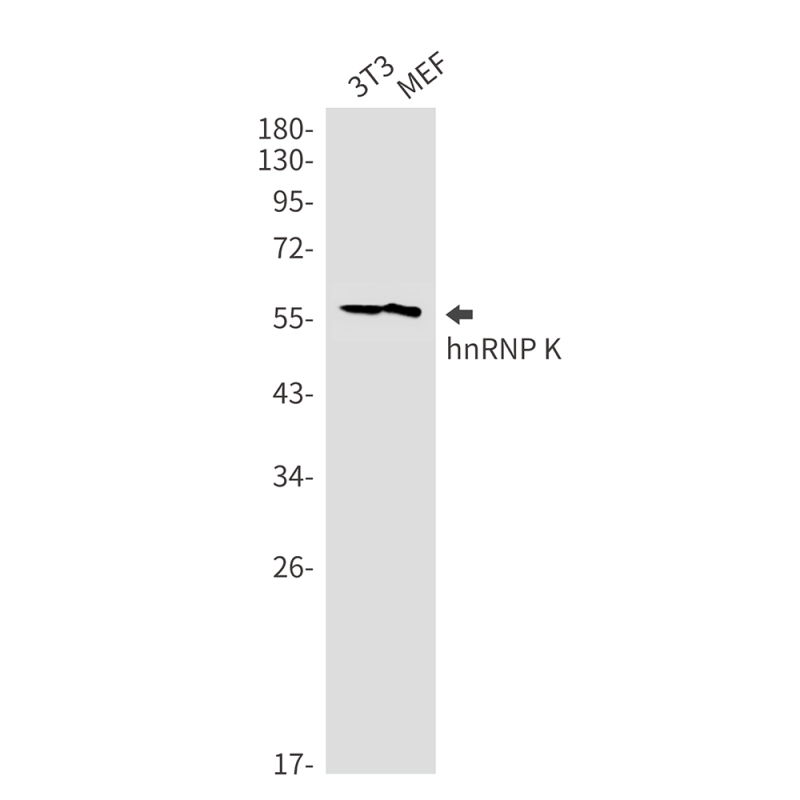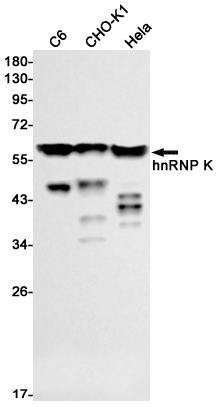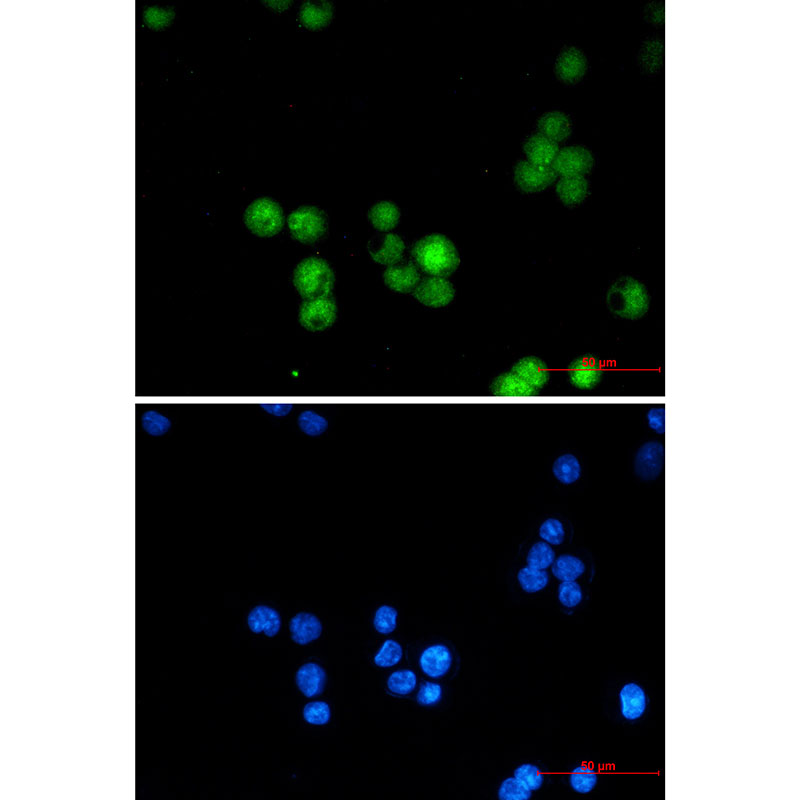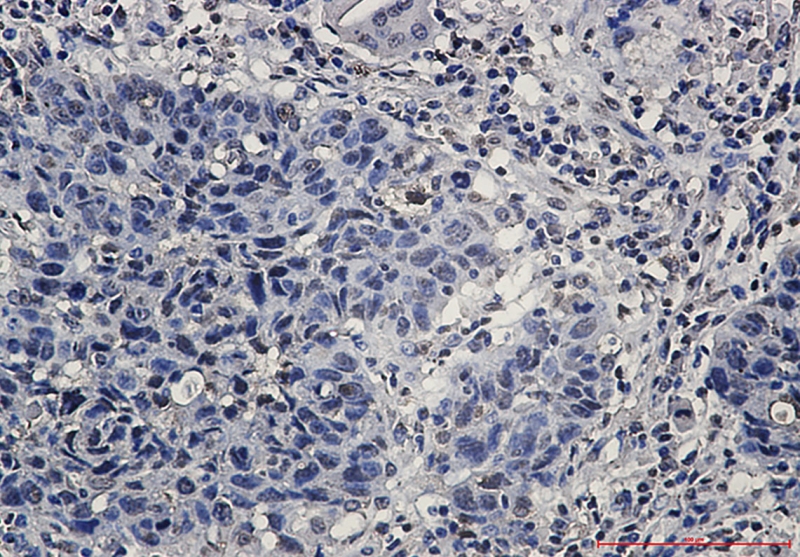



| WB | 1/500-1/1000 | Human,Mouse,Rat,Hamster |
| IF | 1/20 | Human,Mouse,Rat,Hamster |
| IHC | 1/50-1/100 | Human,Mouse,Rat,Hamster |
| ICC | 1/50-1/200 | Human,Mouse,Rat,Hamster |
| FCM | 咨询技术 | Human,Mouse,Rat,Hamster |
| Elisa | 咨询技术 | Human,Mouse,Rat,Hamster |
| Aliases | HNRNPK; HNRPK; Heterogeneous nuclear ribonucleoprotein K; hnRNP K; Transformation up-regulated nuclear protein; TUNP |
| Entrez GeneID | 3190 |
| WB Predicted band size | Calculated MW: 51 kDa; Observed MW: 58 kDa |
| Host/Isotype | Rabbit IgG |
| Antibody Type | Primary antibody |
| Storage | Store at 4°C short term. Aliquot and store at -20°C long term. Avoid freeze/thaw cycles. |
| Species Reactivity | Human,Mouse,Rat,Hamster |
| Immunogen | A synthetic peptide of human hnRNP K |
| Formulation | Purified antibody in TBS with 0.05% sodium azide,0.05%BSA and 50% glycerol. |
+ +
以下是3篇关于hnRNP K抗体的代表性文献概览:
---
1. **文献名称**: *hnRNP K interacts with RNA binding motif protein 42 and functions in the maintenance of nuclear speckles*
**作者**: Kim et al. (2017)
**摘要**: 本研究利用hnRNP K特异性抗体进行免疫共沉淀和免疫荧光实验,揭示了hnRNP K与RBM42蛋白的相互作用,并证明两者共同维持核斑(nuclear speckles)的结构完整性,影响mRNA剪接效率。
---
2. **文献名称**: *Dysregulation of hnRNP K in Alzheimer's disease: A potential link to tau pathology*
**作者**: Wang et al. (2020)
**摘要**: 通过Western blot和免疫组化分析,研究者发现阿尔茨海默病患者脑组织中hnRNP K表达显著降低,且其异常定位与tau蛋白过度磷酸化相关,提示其在神经退行性疾病中的病理作用。
---
3. **文献名称**: *hnRNP K modulates DNA damage response through regulation of p53 transcriptional activity*
**作者**: Moumen et al. (2013)
**摘要**: 利用hnRNP K抗体进行ChIP-seq和功能实验,证实hnRNP K通过直接结合p53启动子区域调控其转录活性,影响细胞在DNA损伤后的凋亡与修复决策。
---
这些文献展示了hnRNP K抗体在分子机制、疾病关联及功能研究中的关键应用。如需具体期刊信息或补充文献,可进一步提供研究方向。
Heterogeneous nuclear ribonucleoprotein K (hnRNP K) is a multifunctional RNA-binding protein involved in various aspects of nucleic acid metabolism, including transcription, mRNA splicing, transport, and translation. It plays critical roles in regulating gene expression by interacting with DNA, RNA, and proteins, and is implicated in cellular processes such as cell cycle control, chromatin remodeling, and stress response. Dysregulation of hnRNP K has been linked to cancers, neurological disorders, and viral infections.
Antibodies targeting hnRNP K are essential tools for studying its expression, localization, and function in both physiological and pathological contexts. These antibodies are widely used in techniques like Western blotting, immunoprecipitation, immunofluorescence, and immunohistochemistry to detect hnRNP K in cell lines, tissues, or experimental models. Given its presence in multiple cellular compartments (nucleus, cytoplasm, and occasionally mitochondria), specific antibodies help elucidate its dynamic roles under different conditions.
Researchers often validate hnRNP K antibodies using knockout cell lines or siRNA-mediated knockdown to confirm specificity. Commercial antibodies may vary in performance depending on epitope recognition and cross-reactivity with related hnRNP family members. Understanding hnRNP K's involvement in diseases, particularly cancer progression and metastasis, drives the demand for reliable antibodies to explore its mechanisms and therapeutic potential. Proper antibody characterization remains crucial for reproducibility in studies focusing on RNA-protein interactions or post-transcriptional regulation.
×